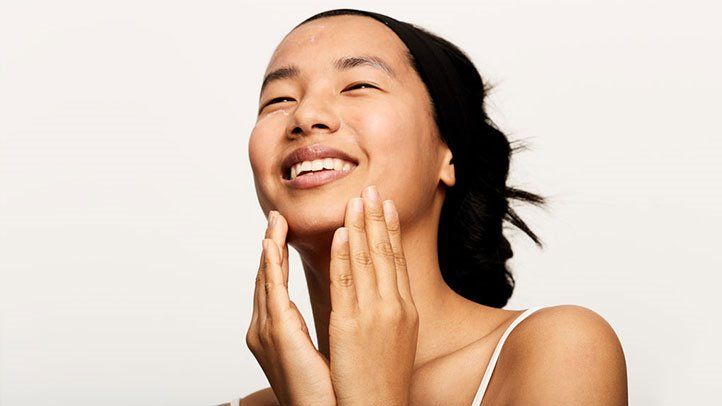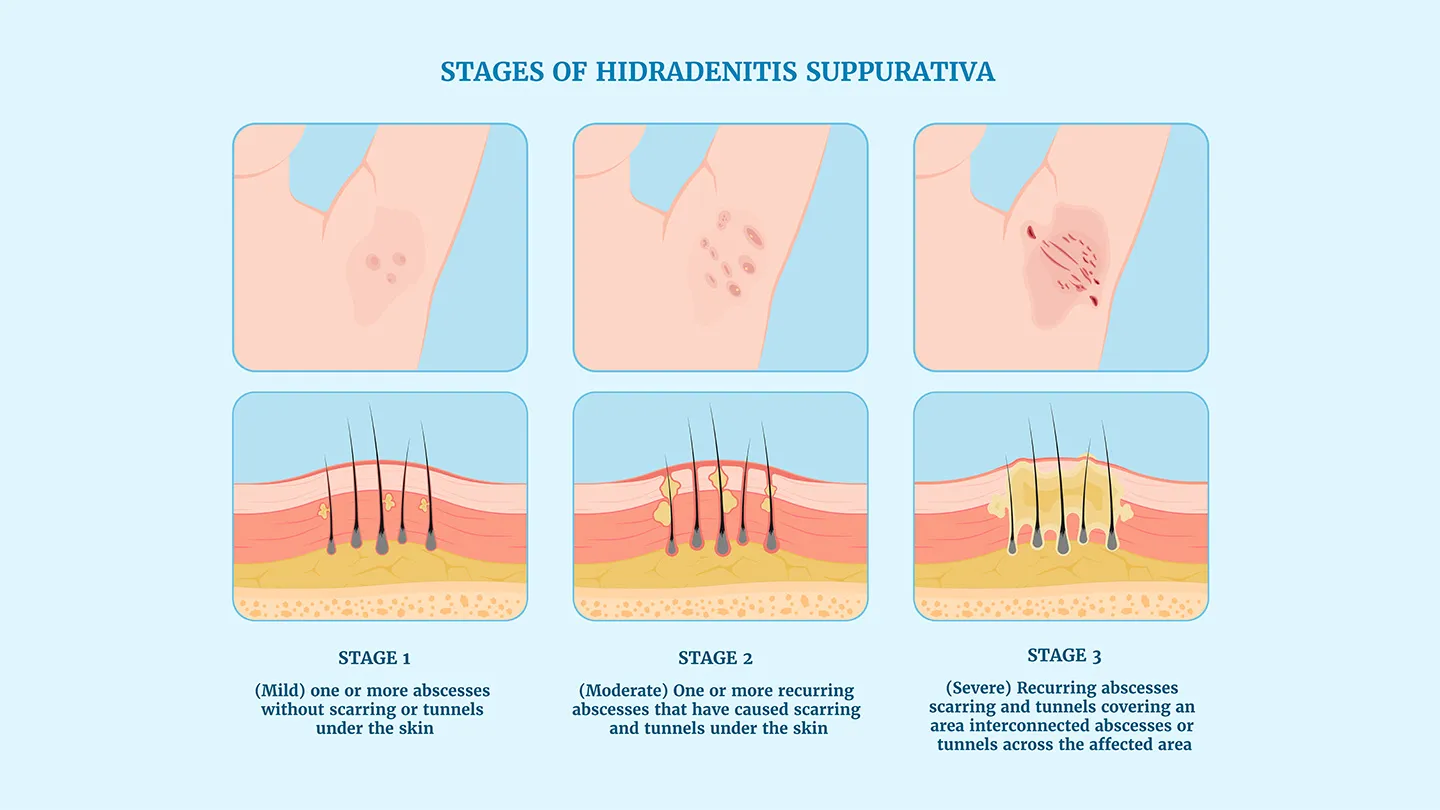Benefits of Using Moisturizer for Acne-Prone Skin
Some common benefits of using moisturizer on acne-prone skin include:
Hydrating Skin
Acne treatments like salicylic acid and benzoyl peroxide can dry out the skin. A good moisturizer provides hydration to combat this side effect.
Reducing Irritation
Ingredients like hyaluronic acid and ceramides help repair the skin barrier and minimize irritation that can worsen acne.
Calming Inflammation
Some moisturizers contain soothing ingredients like green tea, aloe vera, chamomile, and niacinamide to reduce redness and inflammation from acne.
Unclogging Pores
Oil-free, non-comedogenic moisturizers can help dissolve pore-clogging debris to prevent acne lesions.
Boosting Other Acne Treatments
Using moisturizer alongside acne medications makes them more effective by preventing dryness and irritation.
What to Look for in an Acne Moisturizer
Here are some key features to look for when choosing a moisturizer for acne-prone skin:
Non-Comedogenic
This means the moisturizer has an oil-free, lightweight formula that won't clog pores. Terms like "won't clog pores" or "oil-free" also indicate this.
Hydrating Ingredients
Look forhydrating ingredients like hyaluronic acid, glycerin, ceramides, plant oils like jojoba, aloe vera, etc. They attract and seal in moisture in the skin.
Skin-Calming
See if the moisturizer contains soothing botanicals like aloe, chamomile, green tea, calendula. Anti-inflammatory ingredients like niacinamide are also good.
SPF
Using a moisturizer with SPF protects acne-prone skin from sun damage that can worsen breakouts.
Fragrance-Free
Fragrances can irritate sensitive acneic skin. Go for a fragrance-free, hypoallergenic formula.
Gel-Cream Texture
Gel moisturizers are lightweight and great for oily skin. Creams provide more hydration. Look for a gel-cream hybrid texture.
Best Moisturizer Ingredients for Acne-Prone Skin
Some of the most suitable moisturizing ingredients for acne-prone skin include:
Hyaluronic Acid
Attracts moisture to the skin and promotes hydration without clogging pores.
Niacinamide
Soothes inflammation, fights acne-causing bacteria, minimizes pores and regulates oil production.
Salicylic Acid
Gently exfoliates to unclog pores and has antibacterial properties.
Dimethicone
A silicone-based ingredient that fills in fine lines, softens and protects the skin without clogging pores.
Ceramides
Strengthen the skin barrier and help skin retain moisture.
Aloe Vera
Has a cooling, anti-inflammatory effect on acneic skin.
Glycerin
Plant-based humectant that draws in moisture to the outer layer of skin.
12 Best Moisturizers for Acne-Prone Skin Reviews
Here are 12 top-rated moisturizers recommended for acne-prone skin:
1. Cetaphil Daily Facial Moisturizer
A lightweight, fast-absorbing moisturizer that hydrates without clogging pores. It contains hyaluronic acid, vitamin E and B5 to soothe and condition acne-prone skin.
2. Neutrogena Hydro Boost Gel Cream
This gel cream formula is packed with hyaluronic acid to quench thirsty skin. It absorbs quickly without leaving a greasy residue or irritating sensitive skin.
3. Clean & Clear Dual Action Moisturizer
Salicylic acid helps fight breakouts while aloe soothes inflammation. It provides oil-free hydration without clogging pores.
4. CeraVe AM Facial Moisturizing Lotion
Contains hyaluronic acid, ceramides and niacinamide. The oil-free formula moisturizes while protecting skin with SPF 30 sunscreen.
5. La Roche-Posay Effaclar Mat Daily Moisturizer
Oil-absorbing mattifying gel cream with perlite and silica to control shine. Suitable even for severe, cystic acne.
6. First Aid Beauty Ultra Repair Cream
This rich cream provides intense hydration with colloidal oatmeal, shea butter, ceramides and allantoin. Soothes and calms inflamed acneic skin.
7. Aveeno Clear Complexion Daily Moisturizer
Contains salicylic acid to reduce breakouts and total soy complex to even out skin tone. Oil-free and non-comedogenic.
8. Differin Oil Absorbing Moisturizer
Developed specifically for use with Differin gel, this lightweight lotion contains micro-pearl absorbers to control oil and acne.
9. Paulas Choice SKIN BALANCING Invisible Finish Moisture Gel
A hydrating yet fast-absorbing gel with niacinamide and antioxidant botanicals to calm irritation and redness from acne breakouts.
10. Dermalogica Oil Free Matte SPF 30
This oil-free sunscreen moisturizer absorbs excess oil while protecting skin from acne-causing UV damage.
11. Proactiv Green Tea Moisturizer
Green tea and other botanicals soothe inflammation while light mineral oils hydrate without clogging pores.
12. Burts Bees Natural Acne Solutions Clarifying Gel Cream
Combines acne-fighting salicylic acid with botanicals like lemon, lemongrass and witch hazel to clarify, mattify and hydrate.
Tips for Using Moisturizer on Acne-Prone Skin
Here are some tips to get the most out of your acne moisturizer:
Use Lightweight Formulas
Gels, lotions and gel-creams work better than heavy creams that may be comedogenic.
Use Sparingly
Use only a small amount so moisturizer doesn't clog pores. Focus more on dry areas.
Apply After Acne Medications
Let acne medications fully absorb first, then apply moisturizer to avoid diluting their effectiveness.
Avoid Other Irritants
Cut back on scrubbing, greasy products and irritating ingredients to minimize need for moisture.
Opt for Non-Coated Skin
Moisturizers work best on clean, bare skin without residue from makeup or oil.
Other Tips for Managing Acne-Prone Skin
In addition to using a suitable moisturizer, the following tips can help control acne:
Cleanse Twice Daily
Use a gentle cleanser to remove dirt, oil and impurities without over-drying skin.
Exfoliate Regularly
Gently exfoliate 2-3 times a week to unclog pores and allow moisturizer to absorb better.
Avoid Touching or Popping Pimples
It can worsen inflammation and lead to scarring. Leave breakouts alone.
Use Oil-Free Makeup
Non-comedogenic mineral makeup is less likely to clog pores and cause new breakouts.
Watch Diet
Limit dairy, high-glycemic foods and excessive sugar intake linked to acne.
Manage Stress
Anxiety and stress can aggravate acne. Try relaxation techniques.
When to See a Dermatologist
Consult a dermatologist if OTC products don't clear up your acne after 6-8 weeks. A dermatologist can prescribe stronger prescription treatments. Seek prompt medical care for severe acne with:
- Cystic lesions
- Painful nodules
- Scarring
- Discolored lesions
With professional help and the right skincare routine, acne-prone skin can look clearer and more balanced.
FAQs
Is moisturizer good for acne?
Yes, using the right oil-free, non-comedogenic moisturizer can actually help treat acne by keeping skin hydrated and reducing inflammation.
What moisturizer should I use if I have acne?
Look for oil-free gel or lotion formulas with ingredients like hyaluronic acid, niacinamide, aloe vera, dimethicone and salicylic acid for acne-prone skin.
Can moisturizers cause acne?
Heavy, greasy moisturizers or those containing comedogenic ingredients like coconut oil or cocoa butter can clog pores and cause acne in some people.
Should you moisturize daily if you have acne?
Yes, it’s important to moisturize acne-prone skin daily, even when using topical acne medications, to counter dryness and irritation.
Is Cetaphil good for acne prone skin?
Yes, Cetaphil makes several non-comedogenic moisturizers suitable for acne-prone skin. Look for their oil-free formulas made specifically for acne.
Disclaimer: This article is for informational purposes only and does not constitute medical advice. Always consult with a healthcare professional before starting any new treatment regimen.
Related Coverage
Learn how to accurately and sensitively depict the physical, emotional, and psychological symptoms of depression in writing to increase awareness and understanding....
Blackheads on the inner thighs can be caused by clogged pores, friction, and sweat. Treat mild cases with exfoliation and acne creams. See a dermatologist for severe acne....
Skin popping refers to self-harm by intentionally damaging one's skin for photos shared online. This behavior is driven by trauma, mental illness and the quest for connection....
Red light therapy and infrared saunas offer concentrated wavelengths to improve health, but more research is needed. Compare the treatment types and their proposed benefits....
From folliculitis to dermatitis, several culprits can cause those annoying bumps on your butt. Learn what butt acne looks like and how to safely treat it....
Discover the top non-comedogenic and oil-free moisturizers for hydrating acne-prone skin without clogging pores. Includes reviews of moisturizers with hyaluronic acid....
Puberty brings many skin changes. Learn how to create the ideal basic skin care routine for teens to treat acne, oiliness, sensitivity and keep skin healthy....
All body types are normal and healthy. Learn to accept your natural shape through self-care, nutrition, and exercise for overall well-being....
Ashwagandha can sometimes trigger pesky acne breakouts. Discover potential reasons why ashwagandha leads to pimples, plus lifestyle tips and skincare solutions to control flare-ups....
Zinc pyrithione can cause purging acne breakouts. Learn why it happens and get tips to minimize and treat sudden flare ups and pimples fast....






